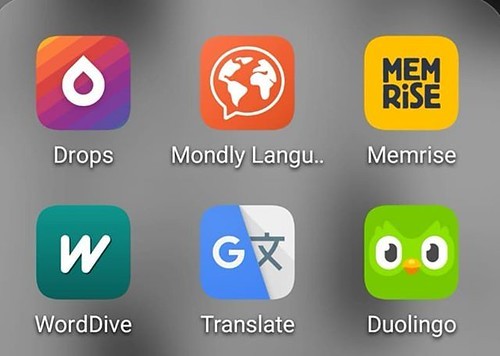Unlocking Linguistic Mastery: Harnessing the Power of Mobile Apps to Master New Languages
- 631

Embarking on the journey of learning a new language can be a thrilling and enriching experience. With the rise of mobile technology, a plethora of apps are at our fingertips, offering innovative ways to immerse ourselves in new linguistic landscapes. In this digital era, where convenience and efficiency are paramount, mobile apps have emerged as a powerful tool for language learners. They provide a platform that is not only accessible but also filled with diverse methodologies catered to individual learning styles. In this article, we will delve into how you can effectively utilize mobile apps to learn a new language, ensuring that your learning process is both enjoyable and successful.
Understanding the App Landscape
Before diving into the language learning process, it is essential to understand the broad spectrum of apps available and how they cater to different aspects of language acquisition. Language learning apps come in various forms, from flashcard-based systems and interactive courses to conversation simulators and comprehensive language platforms. Some apps focus on vocabulary, others on grammar, and some integrate cultural knowledge to enhance the learning experience.
When selecting an app, consider your learning objectives and preferences. Do you want to achieve basic conversational skills, or are you aiming for full fluency? Are you a visual learner or do you retain information better through audio? Look for apps that offer a trial period so you can test their approach before committing. It's also beneficial to seek out reviews and testimonials from other language learners to gauge the effectiveness of an app. Remember that the most popular app may not necessarily be the one that aligns best with your learning style, so be open to exploring several options before settling on your primary learning tools.
Building a Solid Foundation

Once you have chosen an app that resonates with your learning goals, the next step is to build a strong foundation in the new language. Start with the basics: familiarize yourself with common phrases, essential vocabulary, and the sounds of the language. Many apps use spaced repetition systems (SRS) to help learners memorize new words and phrases effectively. These systems present information at optimal intervals to ensure retention and recall.
Furthermore, a good language app should provide clear explanations of grammar rules and sentence structures, as these are the building blocks of communication. Engage with the app's exercises, whether they're matching games, fill-in-the-blank activities, or pronunciation practice. Consistency is key in this stage, so set aside dedicated time each day to interact with the app. This regular exposure will help you internalize the basic elements of the language, creating a solid platform upon which you can build more complex skills.
Enhancing Listening and Speaking Skills
Acquiring a new language is not just about reading and writing; listening and speaking are equally crucial components. To enhance these skills, seek out apps that offer audio or video content in the language you're learning. Listening to native speakers can significantly improve your pronunciation and intonation. Many apps provide conversational practice with speech recognition technology, allowing you to refine your speaking abilities and receive immediate feedback.
Interactive features, such as chatbots or live conversations with native speakers, can also provide valuable speaking practice. These simulate real-life interactions and can boost your confidence when it comes to speaking the language outside of the app. Additionally, listening to podcasts, songs, or watching movies in the target language through the app can further improve your listening skills and acclimate your ear to different accents and dialects.
Expanding Vocabulary and Cultural Insight

An enriched vocabulary is vital for expressing yourself fully in a new language. Advanced language learning apps often include thematic lessons that allow you to expand your vocabulary based on topics of interest, such as food, travel, or business. This targeted learning is not only more engaging but also ensures that you are learning words and phrases that are relevant to your life and interests.
Cultural insight is another layer that some apps offer, providing context to the language through cultural notes, idioms, and customs. Understanding the cultural nuances can greatly enhance your ability to communicate effectively and appreciate the language's richness. Look for apps that integrate cultural lessons, and take advantage of these features to gain a more holistic view of the language you're learning.
Measuring Progress and Staying Motivated
To effectively learn a new language with mobile apps, it's important to track your progress and stay motivated. Many apps include progress trackers, badges, and levels to keep you engaged and give you a sense of accomplishment. Set achievable goals and celebrate milestones, whether it's mastering a difficult verb conjugation or having a complete conversation within the app.
Motivation can sometimes wane, especially when faced with challenging aspects of the language. To combat this, some apps use gamification to make learning fun and addictive. They might offer daily challenges, leaderboards, or rewards for consistency. Find an app that strikes the right balance between educational value and entertainment to ensure that you remain committed to your language learning journey.
In conclusion, learning a new language with mobile apps can be an effective and enjoyable process when approached with the right strategy. By understanding the app landscape, building a solid foundation, enhancing listening and speaking skills, expanding vocabulary with cultural insights, and measuring progress to stay motivated, you can unlock the full potential of these digital tools. Embrace the convenience and innovation that mobile apps offer, and you'll find yourself communicating in a new language with confidence and ease.